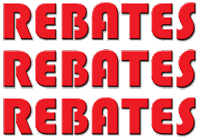New Year, New You? Here's the Real Deal
1.
88% of people who set New Year’s resolutions fail them
within the first two weeks (Source: “New Year’s resolutions: Why do we give up
on them so quickly?”)
2.
20% of those making resolutions will actively keep
themselves accountable when sticking to their goals, but it’s unclear what
percentage of these individuals ultimately succeed (Source: “New Year’s
Resolutions Statistics and Trends [2024]”)
3.
9% of people who make New Year’s resolutions are successful
in keeping them,
while 41% of Americans who make resolutions indicate a significant failure rate
(Source: “Studies Show 91 Percent of Us Won’t Achieve Our New
Year’s Resolutions. How to Be the 9 Percent That Do”)
4.
43% of
people expect to give up their New Year’s resolutions by February (Source:
“Research Shows 43% Of People Expect to Give Up Their New Year’s Resolutions By
February - Sundried”)
With
these nifty factoids in mind, this article is for the 20 percent who hold
themselves accountable. Better yet, unlike all those pieces on healthy lifestyles
and losing weight, these resolutions are guaranteed to add some heft to your
wallet and some street-cred to your resume.
Here
are some valuable suggestions that can make a difference:
For Salespeople:
1. PLAN your time, your
work, your week—bonus points for confirming appointments.
2. Start your day with a pre-planned
appointment at 8:00. This will get you away from stray phone calls and
get you out into your territory.
3. Prioritize and allocate
time to the opportunities that represent the greatest potential, not the ones
that are the most enjoyable.
4. Review and follow up on
your commitments from your sales calls every week.
5. Have personal goals,
not just the ones set for you by your manager.
6. Know and understand
your organization’s strategy. Bonus points
if you can recite a cliff-notes version.
7. Align your goals and
your actions to your organization’s strategy.
8. Use White Space/GAP
analysis to identify product categories your customers are not currently buying
and try to understand why they are not.
9. Use the information
gathered in #8, above, to sell new product categories to existing customers.
10. Identify new customers
you should be selling to and build a game plan to get to know them and their
business.
11. Use and leverage your
CRM system. Track opportunities even if
you have very little chance of success. Why? Supply Chain issues, and competitors who lose
salespeople can result in those opportunities coming back to life.
For
Sales Leaders:
1. Make sure your team
knows and understands your organization’s strategy. This includes sharing the strategy
often. Elaborate on various components
throughout the year. Challenge your team
to memorize a strategy summary.
2. Make sure your team has
concrete goals that align with the strategy.
3. Maintain a strict
commitment to approving and supporting goals and actions that align with the
strategy, and refrain from supporting those that do not align.
4. Spend time with your
salespeople observing how they work and understanding what motivates them.
5. Give your salespeople
feedback that will help them get better and grow.
6. Offer your salespeople
feedback often and don’t wait until the annual performance review to do so.
Bonus points for monthly check-ins.
7. Support your team with
new customer acquisitions. Remove
roadblocks and provide tools for success.
8. Show your team that CRM
is a valuable tool, not a weapon.
9. Use the information
gathered in #4 above to properly motivate and reward your salespeople. Hint: Their motivation is not always money.
10. Fight for your team
when necessary.
A final
word: PLAN
We started
this list for sellers with the word PLAN.
Reviewing the list for both salespeople and their managers, plans, and
planning play a role in many of the resolutions. Are there negative connotations floating
through your mind? Does planning equate
to drudgery? Is planning just another
one of those words with a hidden meaning?
Are planning and hard work synonyms? Or, are planning and discipline closely
related keys to long-term success? We think so.
Since this article launched off with interesting research/factoids, let’s return to data and spend a minute on planning.
- Research from Psychological Science showed that people who set specific goals and create plans to achieve them are 42% more likely to achieve their goals, contributing to higher life satisfaction.
- A study published in the Journal of Personality and Social Psychology found that individuals with high levels of perceived control report greater happiness and lower stress. It went on to say, planning is a common way to exert this control.
- A study from ProfileTree.com highlights that companies with written business plans grow 30% faster than other companies in the same industry.
If these
don’t convince you, here is our personal favorite.
A
study in the journal Applied Research in Quality of Life revealed that
the anticipation of a planned vacation increases happiness levels more than the
vacation itself.
Don’t think of planning as something only for business. Here are seven personal resolutions
that involve planning:
1. Plan to find joy and satisfaction in the
things you do. Make them fun whenever
possible.
2. Don’t just plan your workday, plan for
personal time, too. Block off time for
social interaction with friends and family.
3. Plan time for your hobbies.
4. Plan a call to a former coworker,
college roommate, or your brother who lives in Alaska, and follow through with
it.
5. Plan on establishing friendships with
customers, colleagues, and suppliers.
6. Plan on making your last activity of the
week something fun. This could be a call
on a favorite customer.
7. Plan on celebrating your accomplishments
every week. Don’t just focus on what
went wrong or what could have gone better. Take the time to appreciate what went well and
resolve to keep doing those things.
We wish you
a healthy, happy, prosperous, and productive 2025!






Comments